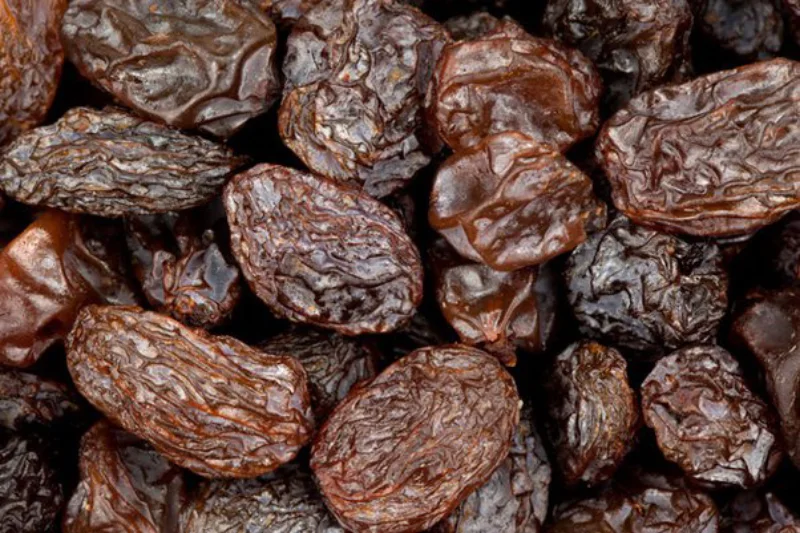Raisins, those tiny bundles of sweetness derived from dried grapes, are a popular snack enjoyed worldwide. But what happens when those raisins pass their expiration date? While raisins don’t spoil in the traditional sense, there are some factors to consider before indulging in expired raisins. This article will delve into the nuances of raisin expiration, exploring the safety concerns, potential taste and texture changes, and the best practices for enjoying these dried treats at their peak freshness.
This comprehensive guide will cover various aspects related to consuming expired raisins, providing you with the information needed to make an informed decision about your next snack choice. We’ll examine the concept of raisin expiration, assess the safety risks associated with eating them past their prime, and discuss potential changes in taste and texture. Finally, we’ll offer recommendations for optimal consumption to ensure you enjoy raisins at their best.
Raisin Expiration
Unlike perishable foods that quickly decompose, raisins have a relatively long shelf life due to their low moisture content. This makes them less susceptible to bacterial growth and spoilage. However, they are not immune to changes over time. Raisins typically have an expiration date printed on the packaging, indicating the period during which they are expected to maintain optimal quality.
The “best by” or “use by” dates provided on raisin packages are guidelines for peak freshness and flavor. While raisins may remain edible beyond this date, their quality might decline. Factors influencing raisin shelf life include storage conditions, such as temperature and humidity, as well as the initial quality of the raisins themselves.
Safety of Expired Raisins
The question of whether can you eat expired raisins often arises. While consuming expired raisins is unlikely to cause severe illness, it’s essential to exercise caution. Over time, raisins can undergo subtle changes in their composition, potentially leading to mild digestive discomfort in some individuals.
Raisins are generally safe to consume even after their expiration date, as they are not prone to bacterial contamination like fresh produce. However, if you notice any signs of mold, discoloration, or an off odor, it’s best to discard the raisins as these could indicate spoilage. It’s always a good practice to prioritize food safety and consume products within their recommended shelf life for optimal quality and well-being.
Taste and Texture Changes
One of the most noticeable effects of consuming expired raisins is a change in taste and texture. As raisins age, they tend to lose their initial sweetness and become harder and drier. This can result in a less enjoyable eating experience compared to fresh raisins.
The drying process inherent to raisin production concentrates their natural sugars. Over time, these sugars can crystallize, leading to a grainy or gritty texture. Additionally, the moisture content of raisins naturally decreases as they age, contributing to their increased dryness. These changes in taste and texture are primarily due to chemical reactions occurring within the raisins over time.
Digestive Discomfort
While can expired raisins make you sick is unlikely, some individuals may experience mild digestive discomfort after consuming them. This could be attributed to the changes in raisin composition that occur with age, potentially affecting their digestibility.
The increased dryness and hardness of expired raisins can make them more difficult to break down during digestion. Additionally, the altered sugar content and texture might irritate the digestive system in some individuals, leading to symptoms such as bloating, gas, or mild discomfort. However, these effects are generally temporary and not indicative of a serious health concern.
Optimal Consumption
To fully enjoy the sweetness and delightful chewiness of raisins, it’s best to consume them before their expiration date. This ensures you experience their peak flavor and texture.
When storing raisins, keep them in an airtight container in a cool, dry place away from direct sunlight and heat. This helps preserve their quality and extend their shelf life. Always check the packaging for any specific storage instructions provided by the manufacturer.
Conclusion
While expired raisins are unlikely to cause severe illness, consuming them past their prime may result in changes in taste, texture, and potential digestive discomfort. For optimal freshness and enjoyment, it’s best to consume raisins before their expiration date and store them properly to maintain their quality. By following these guidelines, you can ensure a safe and satisfying raisin-eating experience.



